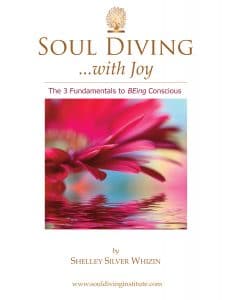 Everyone deals with grief or loss at some point in their life. Perhaps you recently lost your parent to a prolonged illness or suddenly broken up with a longtime partner. No matter what loss you have experienced, grief usually follows. It can be hard to deal with the emotion of grief because it looks different for each person. It also comes wrapped up in other emotions such as anger, fear, or even joy which can be confusing.
Everyone deals with grief or loss at some point in their life. Perhaps you recently lost your parent to a prolonged illness or suddenly broken up with a longtime partner. No matter what loss you have experienced, grief usually follows. It can be hard to deal with the emotion of grief because it looks different for each person. It also comes wrapped up in other emotions such as anger, fear, or even joy which can be confusing.
David Kessler is one of the leading experts in the fields of loss and grieving, and he specializes in work that directly deals with death. His work with other professionals in this area have helped reach a broad audience and through is books, you can learn valuable tools to cope with the loss of a loved one, a relationship, or anything else. If you want to learn more about David Kessler and the breadth of his work, this article should help.
The History of Dr. David Kessler
David Kessler started his college education at the University of Southern California and went on to earn his masters in Bioethics at Loyola Marymount University. Dr. Kessler knew from a very early age that he wanted to help others learn to cope with grief.
After his mother died when he was 12, Kessler realized that there wasn’t a lot of counseling that actually helped his situation. By going through the loss of his mother, he learned what he wanted to give back to others going through the same thing.
Kessler worked with prominent professionals, such as Elizabeth Kubler-Ross, to become an expert in the field of grief counseling. Because of his books, his message and tools have reached a large audience. He still hosts events and counseling groups around the country to help others in their grief.
Kessler’s Focus on Grief and Grieving
There are many areas of grief and many ways that people can experience it. For the most part, Dr. Kessler focuses on the grief that accompanies the end of life. His very first book, The Needs of the Dying, addresses many of these issues. But Kessler also understood the need for those left behind after death to experience relief.
Today, Kessler works in the hospice and palliative care fields. He meets not only with people who are near the end of their life, but their close family and friends as well. His book, On Grief and Grieving, addresses the five stages of grief and how each person passes through those steps on the way towards healing.
Lately, Kessler has also spent some time dealing with the afterlife and near-death experiences. He hopes to shed light on these events and further assist people with the challenging topic of death.
The Books of David Kessler
In a span of about 20 years, David Kessler has written six books. He collaborated with the renowned psychologist, Elizabeth Kubler-Ross on two of them and recently wrote another with self-empowerment expert, Louise Hay.
The Needs of the Dying
This was Kessler’s very first book and dealt with the complicated emotions and process of facing death. It is a guide for those near the end of their life as well as a helpful tool for those that surround them. This book brought Kessler into the spotlight and was even lauded by Mother Teresa.
Life Lessons
This was the first book that David Kessler wrote with Elizabeth Kubler-Ross. The focus of this book brings to light the lessons that death can teach us. Because of both their intense work with those that are dying, they saw the same experiences come up repeatedly. Life Lessons helps teach you how to live life to the fullest.
On Grief and Grieving
This was Kessler’s final collaboration with Elizabeth Kubler-Ross and her last book before her death. On Grief and Grieving adapts the five stages of death to fit the needs of those that grieve the loss. The book works to help those going through the grieving process find healing and move on with their lives.
Visions, Trips, and Crowded Rooms
Kessler takes us through three uniquely shared experiences concerning death. The visions many near death claim to see of the afterlife, the trip that we prepare for as we near death, and the phenomenon of a crowded room that many dying people see. This book is a unique look at how instead of being empty death can be surprisingly full.
You Can Heal Your Heart
Written along with Louise Hay, You Can Heal Your Heart helps you heal through grief. Not only does the book deal with losing a loved one to death, but how your heart can heal after a breakup or even a divorce.
Healing Grief Card Deck
The most recent book from David Kessler includes 55 practical strategies to cope with a loss. You can use these cards to focus on healing and rebuilding.
The Five Stages of Grief
Elizabeth Kubler-Ross first addressed the five stages of death in her book On Death and Dying. When Kessler and Kubler-Ross worked together to write On Grief and Grieving, they took those five stages and adapted them to those grieving. While they might look the same at first glance, they are quite different from each other.
On his website, Kessler makes a point to emphasize that the five stages of grief are part of a framework that makes up the way we learn to cope with grief. Many often misunderstand these stages as a way to quickly move through grief and end up on the other side healing and happy. Because everyone experiences life and grief in separate ways, they will also move through the five stages of grief differently.
Some might skip stages or experience more than five stages, others might not move through them in a linear fashion, and others might feel stuck in one stage for much longer than the rest. No matter what the experience, remember your grief is as unique as you.
Denial
Denial is often the first stage many people cope with during grief. It’s a survival instinct to help deal with the fact that we have lost something dear. Many people describe themselves at this stage as numb or in disbelief.
They don’t feel much emotion or can’t believe that they lost someone so important. Denial allows our mind only to take on what it can handle at the moment as grief can sometimes be overwhelming. Once you start to ask yourself questions and accept that the loss is real, you move out of denial and into a new stage.
Anger
Many people consider anger and unpleasant emotion and one they should avoid, but it is an integral part of the grieving process. Underneath anger is pain and it is crucial to feel and understand that pain, even if it is unpleasant.
Kessler describes grief as being lost at sea because your emotions can feel so vast. But anger provides an anchor in that vast sea of emotions. It creates a bridge over that sea and allows you to connect in some way. Even though we are taught to suppress our anger, feeling it during the grieving process allows us to release it and move towards healing.
Bargaining
In the five stages of death, bargaining is making a deal with God. If you let me live, I will devote my life to service or something along those lines. For those grieving, bargaining looks a little different. It could be that you make a deal with God to do something only if you can wake up and realize this loss is just a horrible dream.
This stage is often described as the “what if” or “if only” stage and is a way to grieve what was and fight a new future without someone or something we love. Many people try to live in the past for as long as possible to feel connected with what they don’t have any longer.
Depression
After trying to live in the past, it’s common to realize the present is our new normal suddenly. Life goes on and what you once had is no longer there. Depression often sets in, and the grief you have felt all along can suddenly become oppressing.
Grief is much more profound at this stage, and it can feel like it will never end. Many people fight this stage because they don’t want the label of depressed or dealing with a mental illness. It is essential to understand that depression isn’t a sign of being broken but of coping with a loss. As unpleasant or overwhelming as it seems, depression is a way to move through grief and towards healing.
Acceptance
The acceptance stage is often mistaken as the final stage. Many people think that once they get to acceptance, they are alright or fully healed again. You will never be the same person you were before your loved one passed away. Acceptance is the realization that the loss really occurred, and this is your new reality. Acceptance will also look different for each person. Some might reorganize their life to fill the gaps left behind or merely characterize acceptance as more good days than bad. Acceptance allows us to begin moving on and looking forward to the future but never forgetting the grief we felt or continue to experience.
Again, these five stages are just a framework for grief. You don’t have to move through it in order or in a particular amount of time, and you might never even reach certain stages. The important part is you realize it’s a process and one that you can move through with support and guidance.
If you need counseling through a painful loss, you can find both grief counselors and grief groups through David Kessler’s website.





